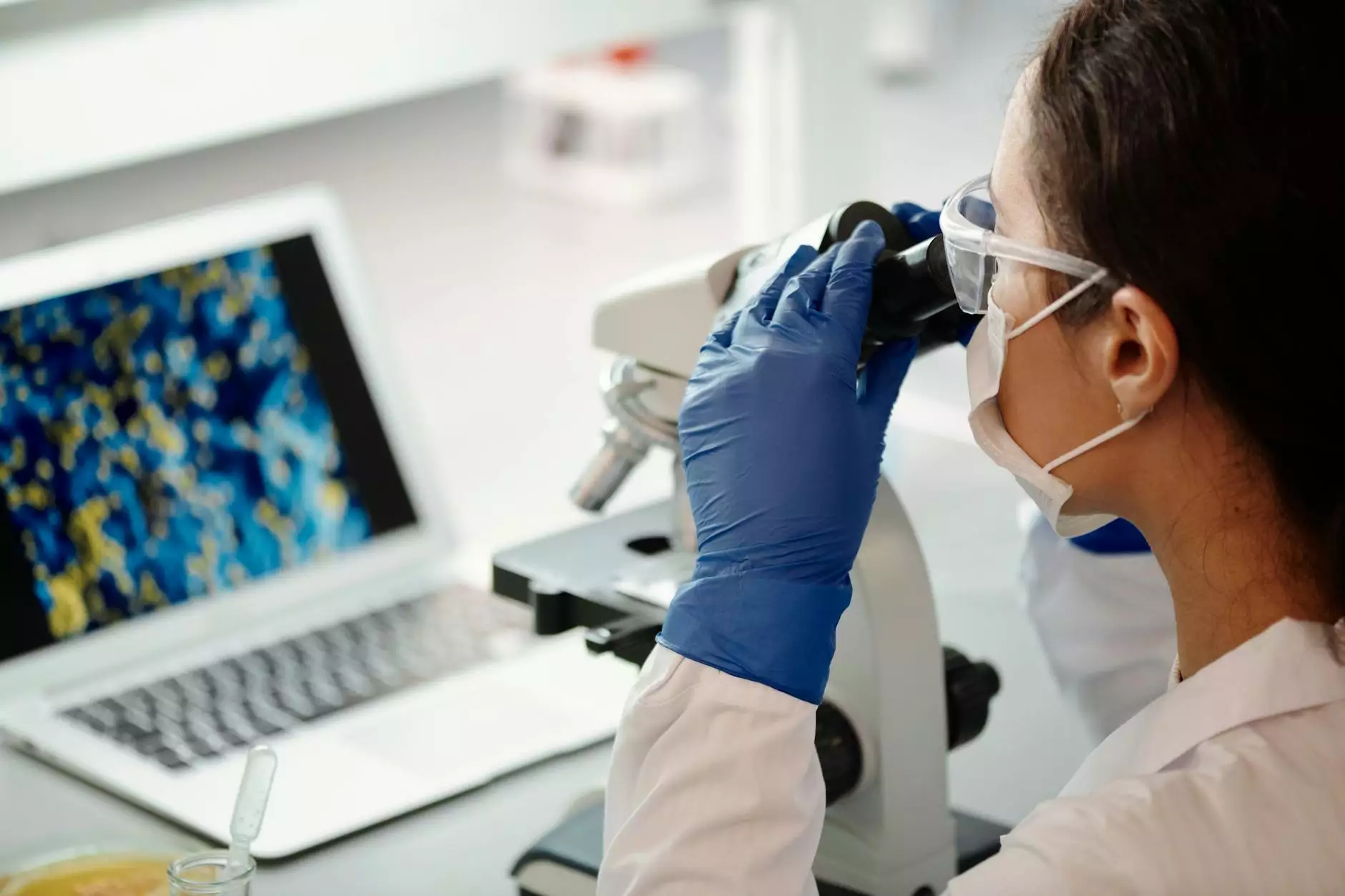Unlocking Success in Microbiology: Innovative Research Project Ideas for Educational Excellence

In today’s dynamic educational landscape, particularly within Educational Services and Education, fostering student engagement through hands-on research is essential. Microbiology, a fascinating branch of biology, offers ample opportunities for students to develop critical thinking, research skills, and a deeper understanding of microbial sciences. In this comprehensive guide, we explore microbiology research project ideas that are not only innovative but also tailored to inspire budding microbiologists, educators, and research enthusiasts.
Understanding the Importance of Microbiology Research in Education
Microbiology research serves as a cornerstone in higher education and professional training, empowering students to explore the microbial world that significantly impacts human health, industry, and the environment. Effective microbiology projects:
- Enhance analytical and scientific skills
- Encourage problem-solving and innovation
- Foster critical thinking and hypothesis development
- Introduce practical laboratory techniques and safety protocols
- Promote awareness of global health issues and environmental challenges
Education and Educational Services providers can leverage these projects to cultivate curiosity, motivate learners, and prepare future professionals in microbiology and related fields.
Key Factors in Designing Effective Microbiology Research Projects
Creating impactful microbiology research project ideas requires careful planning. Consider the following:
- Relevance to Current Scientific Trends: Align projects with emerging topics such as antibiotic resistance, microbiome studies, or environmental microbiology.
- Feasibility and Resources: Select ideas that utilize available laboratory equipment, materials, and safety protocols.
- Potential for Originality: Encourage innovative thinking to develop unique hypotheses or approaches.
- Educational Value: Ensure the project deepens understanding of microbiological concepts and methodologies.
- Scalability and Scope: Design projects suitable for various levels, from introductory to advanced research initiatives.
Top Microbiology Research Project Ideas for Educational & Educational Services
1. Exploring the Diversity of Microbial Communities in Local Environments
This project involves sampling soil, water, or air from diverse locations to analyze the microbial diversity using techniques like culture methods, microscopy, or molecular approaches such as PCR. It helps students understand microbial ecology, environmental microbiology, and the impact of microbial populations on ecosystems.
2. Investigating Antimicrobial Properties of Plant Extracts
Students can examine how different plant extracts inhibit or promote microbial growth. This project combines botany and microbiology, encouraging exploration of natural remedies, phytochemicals, and their potential as antibiotics or preservatives.
3. Study of the Human Microbiome and Its Role in Health
This inspiring project can involve analyzing microbial samples from human subjects to examine variations in microbiota related to diet, health status, or lifestyle. Advanced students might explore sequencing techniques to identify microbial species, fostering insights into personalized medicine and health sciences.
4. Developing Rapid Detection Methods for Pathogenic Microorganisms
The goal is to design and test quick, reliable assays—such as immunoassays, colorimetric tests, or molecular diagnostics—to identify pathogens like E. coli, Salmonella, or staphylococci. This project emphasizes practical applications in food safety, public health, and clinical diagnostics.
5. Analyzing Antibiotic Resistance Patterns in Microbial Isolates
This research involves collecting bacterial samples from various sources and testing their sensitivity to different antibiotics. Outcomes contribute to understanding resistance trends, fostering awareness of antimicrobial stewardship, and combating global health challenges.
6. Engineering Microbes for Bioremediation of Pollutants
Encouraging innovation, this project explores how genetically or naturally occurring microbes can degrade environmental contaminants like hydrocarbons, heavy metals, or plastics. It connects microbiology with environmental sustainability efforts and renewable technology development.
7. Studying Microbial Growth Kinetics and Environmental Factors
Students investigate how variables such as temperature, pH, oxygen levels, or nutrient availability influence microbial growth. Such projects deepen understanding of microbiological physiology and inform industrial applications like fermentation and food production.
8. Investigating Microbial Resistance in Healthcare Settings
This project examines the prevalence of resistant strains in hospitals or clinics, emphasizing infection control, sterilization practices, and public health strategies. It aims to provide data critical for policy development and patient safety measures.
9. Examining the Effectiveness of Natural Disinfectants
This involves testing various natural substances (e.g., vinegar, neem, garlic) against common pathogens to evaluate their disinfectant efficacy. Promoting natural alternatives aligns with sustainable practices in daily life and healthcare.
10. Studying the Impact of Environmental Changes on Microbial Life
Explore how factors such as pollution, climate change, or urbanization affect microbial populations in specific environments. The project addresses pressing ecological issues and the resilience of microbial ecosystems.
Implementing Your Microbiology Research Project: Tips for Success
Executing successful microbiology projects in Educational Services involves:
- Identifying Clear Objectives: Define what the project aims to discover or demonstrate.
- Planning Meticulously: Outline procedures, required materials, safety considerations, and timelines.
- Ensuring Safety and Compliance: Adhere to biosafety protocols and ethical standards.
- Encouraging Collaboration: Promote teamwork, interdisciplinary approaches, and mentorship.
- Data Analysis and Reporting: Teach students to analyze results critically and communicate findings effectively through reports, presentations, or publications.
Advancing Microbiology Education with Project-Based Learning
Integrating hands-on research projects into the curriculum not only enriches students’ learning experiences but also enhances their problem-solving capabilities. Educational Services can facilitate this process by providing resources, laboratory setups, and expert guidance tailored to microbiology studies.
Furthermore, online platforms and digital tools can support data collection, analysis, and virtual collaboration, making microbiology research accessible and engaging for a broader audience. Ultimately, fostering a culture of curiosity and inquiry can lead to groundbreaking discoveries by future microbiologists.
Conclusion
Embarking on microbiology research project ideas within Education and Educational Services paves the way for transformative learning experiences. From exploring microbial diversity to innovating biotechnological solutions, hundreds of creative, relevant, and impactful projects await students and educators alike. By embracing these ideas and best practices, you can elevate educational outcomes, inspire scientific curiosity, and contribute to global efforts in health, environment, and industry.
In the ever-evolving world of microbiology, continuous innovation and dedication are key. Whether you're developing a small classroom activity or pioneering complex research, each project adds valuable knowledge to the scientific community and sharpens the skills of future leaders in microbiology.
Visit projectchampionz.com.ng for more insights into educational project development, resources, and expert consultancy in microbiology and beyond. Together, we can champion the next generation of scientific explorers and innovators.









